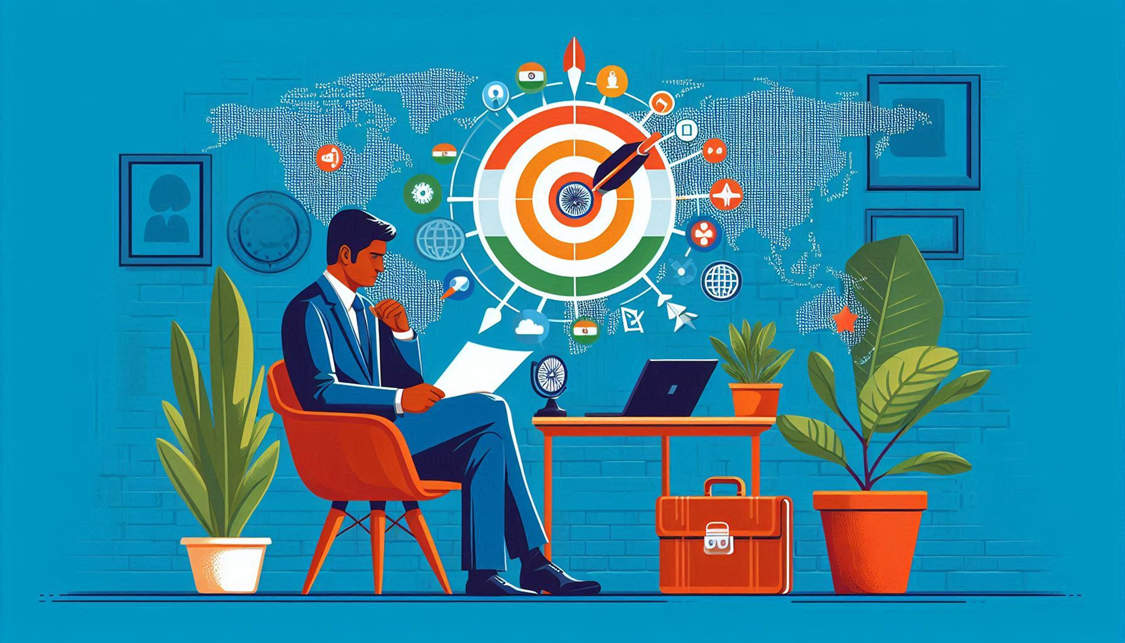Blog Posts & Blog Archives
All Blogs / career-advice-
Interview Preparation Guide for Indian Candidates Targeting Global Jobs
Ace interviews with foreign employers! Learn cultural tips, common questions, and strategies for Indian professionals seeking international roles.
Friday, June 6, 2025
Interview Preparation Guide for Indian Candidates Targeting Global Jobs
Introduction
Securing a job with a foreign employer is an exciting
opportunity, but it requires meticulous preparation to navigate cultural nuances,
communication styles, and differing expectations. For Indian candidates,
understanding what global employers value—from punctuality to problem-solving
approaches—can make or break an interview. This guide equips you with
actionable strategies to ace international interviews, whether you’re targeting
the USA, Europe, the Middle East, or Asia.
1. Research the Employer & Cultural Context
Understand the Company’s Values
- Visit
the company’s website and social media to learn about its mission,
culture, and recent projects.
- Use
platforms like Glassdoor or LinkedIn to
gather insights into interview processes and employee experiences.
Study the Country’s Work Culture
- USA/Canada:
Emphasize individualism, confidence, and quantifiable achievements.
- Europe
(Germany, France): Value punctuality, formal communication, and
technical expertise.
- Middle
East (UAE, Saudi): Prioritize respect for hierarchy and
cultural/religious norms.
- East
Asia (Japan, South Korea): Stress humility, teamwork, and long-term
loyalty.
Pro Tip: Watch interviews or documentaries about
workplace culture in your target country.
2. Master Common Interview Formats
A. Behavioral Interviews
- Objective:
Assess soft skills (teamwork, leadership, conflict resolution).
- Sample
Questions:
- “Describe
a time you resolved a conflict at work.”
- “How
do you handle tight deadlines?”
- Strategy:
Use the STAR method (Situation, Task, Action, Result) to
structure answers.
B. Technical Interviews
- Common
in: IT, engineering, finance, and healthcare roles.
- Preparation:
- Practice
coding tests (LeetCode, HackerRank for IT roles).
- Review
case studies for management/consulting roles.
C. Virtual Interviews
- Tools:
Zoom, Microsoft Teams, or HireVue (AI-driven platforms).
- Tips:
- Test
your internet connection and lighting.
- Dress
professionally (even for remote interviews).
- Maintain
eye contact by looking at the camera.
3. Anticipate Key Interview Questions
Frequently Asked Questions
- “Tell
me about yourself.”
- Focus
on career highlights relevant to the role. Avoid personal details.
- Example: “I’m
a software engineer with 5 years of experience in fintech, specializing
in blockchain solutions.”
- “Why
do you want to work here?”
- Link
your skills to the company’s goals.
- Example: “Your
focus on AI-driven healthcare aligns with my passion for tech innovation
in medicine.”
- “What’s
your greatest weakness?”
- Turn
a weakness into a growth opportunity.
- Example: “I
sometimes overcommit, but I’ve learned to prioritize tasks using Agile
methodologies.”
Country-Specific Questions
- USA/Canada: “How
do you handle failure?”
- Germany: “How
do you ensure precision in your work?”
- Japan: “How
would you adapt to working in a team-oriented environment?”
4. Refine Communication Skills
Language Proficiency
- English:
Avoid filler words (“like,” “actually”). Practice fluency with tools
like Cambly or IELTS Speaking simulators.
- Local
Language: Learn basics for non-English speaking countries (e.g.,
German for Germany).
Non-Verbal Communication
- Body
Language:
- USA/Europe:
Firm handshake, confident posture.
- Asia/Middle
East: Moderate eye contact, avoid aggressive gestures.
- Tone:
Stay polite but assertive in Western cultures; respectful and humble in
Asian contexts.
5. Prepare Questions for the Interviewer
Asking thoughtful questions shows engagement:
- “What
does success look like in this role?”
- “How
does the team collaborate across time zones?”
- “What
are the company’s goals for the next 5 years?”
Avoid: Questions about salary/benefits in the first
interview.
6. Address Visa & Relocation Topics
- If
Asked: Be honest about visa requirements but emphasize flexibility.
- Example: “I’ll
need a work permit, but I’m open to relocating as soon as possible.”
- Research:
Understand the country’s visa process (e.g., H-1B for USA, Blue Card for
EU).
7. Post-Interview Follow-Up
- Send
a thank-you email within 24 hours, reiterating your
interest.
- Example:
“Thank you for discussing the project manager role. I’m excited about contributing to your team’s success in scaling European operations.”
Checklist for Indian Candidates
✅ Research company culture and
country-specific norms.
✅
Practice STAR method for behavioral questions.
✅
Test tech setup for virtual interviews.
✅
Prepare 3–5 intelligent questions for the
interviewer.
✅
Plan professional attire (formal for EU/Middle East, business casual for
startups).
Conclusion
Interviews with foreign employers are a gateway to global career growth. By blending cultural awareness, technical preparation, and confident communication, Indian candidates can stand out in competitive international job markets. Remember: Every interview is a learning opportunity—stay resilient and keep refining your approach.
Related Blogs
.jpg)
10 Essential Tips for Indians Seeking Jobs in the Gulf (2024 Guide)
Planning to work in the Gulf? Discover top 10 tips for Indian job seekers—from visa rules to salary negotiation & cultural adaptation.
Gheewalajobs | Thursday, June 5, 2025.jpg)
10 Essential Tips for Indians Seeking Jobs Abroad (2024 Guide)"
Planning to work abroad? Discover top 10 tips for Indian job seekers—from visa rules to salary negotiation & cultural adaptation.
Gheewalajobs | Thursday, June 5, 2025


